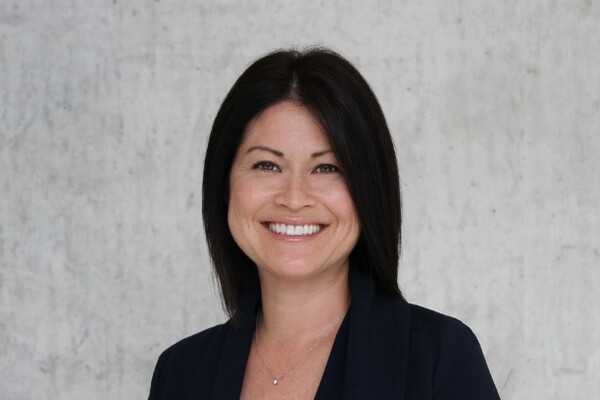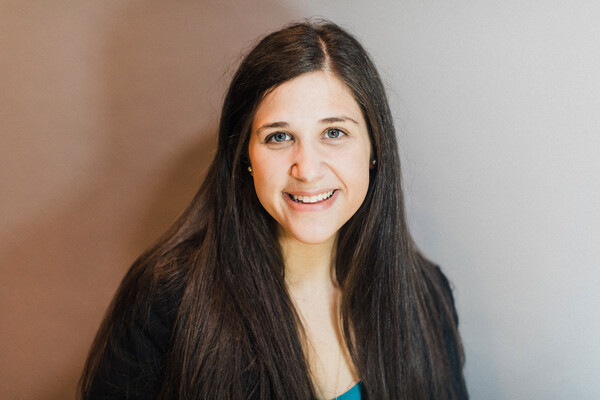Breadcrumbs
- Home
- Community & Partnerships
- Interprofessional Communities & Networks
- Affiliate Scholars
Affiliate Scholars
CACHE is committed to promoting and enhancing IPE through facilitation, professional development, research, and education leadership. CACHE members will build on the successes of the Centre through engagement, collaborative partnerships, deepening and extending leadership and support in interprofessional education, research, and practice. Our Affiliate Scholars form the actively engaged and close community of leaders, scientists, and educators that CACHE learns with and from to advance the science and practice of interprofessional and collaborative healthcare and education.

Ivy Oandasan, MD MHSc EMBA CCFP FCFP, Senior Affiliate Scholar
Dr. Oandasan is an Academic Family Physician and Full Professor at the Temerty Faculty of Medicine at the University of Toronto who has engaged in clinical practice and health professions' education since 1993. Her ongoing hope is to help influence the development of competent and caring healthcare professionals who believe in the practice of interprofessional patient-centred care. Considered an expert in the field of Interprofessional Education (IPE) and Family Medicine Education, she grounds her knowledge and practice through her work as a clinician, educator, researcher, and administrator.
As the Director of Education at the College of Family Physicians of Canada (CFPC) she leads the advancement of competency based family medicine education across the continuum of learning from undergraduate to postgraduate education and into the early years of practice. She designed and implemented the program evaluation of Family Medicine's Triple C Competency based Curriculum and is the Co-Lead of the Education, Evaluation and Research Unit at the CFPC.
In her roles as an educational researcher, inaugural Director of the Office of IPE at University of Toronto, project lead for Health Canada's Literature Review and Environmental Scan for Interprofessional Collaborative Patient Centred Practice and co-lead for Ontario's Interprofessional Care (IPC) Blueprint for Action and co-lead for Team Primary Care (A Pan-Canadian $45.3 million federally funded project) she has influenced the implementation of IPE, IPC and Team-based primary care locally, provincially (Ontario), nationally (Canada) and internationally.
Dr. Oandasan has presented and published widely. She has successfully acquired over $55 million of grant funding since the year 2000 and published over 100 peer and grey literature articles and co- authored numerous reports. With all of these experiences, she has been asked to speak and consult with others internationally to advance curricular and health education/practice system change.

Amanda Binns, M.A. SLP-CCC, Reg. CASLPO
Amanda Binns PhD is a clinician, researcher, and educator in the field of Speech-Language Pathology (SLP). Drawing from her interprofessional clinical experiences working with autistic individuals; her program of research aims to create more compassionate, individualized, and evidence-informed care experiences for neurodivergent clients and their families ( https://www.slpmaps.ca). She hones a partnership-focused, co-creation approach to her work and incorporates a combination of practice-based research and implementation science methodologies. Her work has taken her across the globe, with over 45 invited presentations across 5 continents.
Dr. Binns is Assistant Professor in the Department of Speech-Language Pathology, University of Toronto, and Adjunct Research Professor at Western University. She is Clinical Education Development Lead at the Centre for Faculty Development, for the Stepping Stones and TLC programs, and is clinical-lead of an innovative and award winning, interprofessional Autism Focused Education Program that is building capacity in the next generation of clinicians, and supporting autistic children and families in Ontario.

Sandalia Genus, PhD
Sandalia Genus has a PhD in social anthropology from the University of Edinburgh and a Masters in social anthropology from Simon Fraser University. She is a Research Associate at Sunnybrook Health Sciences Centre and Adjunct Professor (status only) in the Department of Anthropology at the University of Toronto. She holds appointments as an Affiliate Scholar at CACHE and a Scholar at the Wilson Centre. She has conducted numerous ethnographic, qualitative and mixed-methods studies about medical education, health partnerships and integrated care in Tanzania, Europe and Canada. Sandalia is interested in how hierarchical social dynamics impact collaborative practice for health professionals. Previously, she evaluated a program that integrated community health workers into a HIV Psychiatry clinic at Mount Sinai Hospital. At Sunnybrook, she will conduct research about patient care pathways and transitions, and in collaboration with CACHE, she will explore the impacts of interprofessional education on collaborative practice.

Kristina Lisk, PhD, MSc, BScH
Kristina Lisk is an Assistant Professor, Teaching Stream at Temerty Faculty of Medicine, University of Toronto, where she teaches anatomy in undergraduate, post-graduate, and professional health science programs. Dr. Lisk is also Scholar at the Wilson Centre and leads an active program of research in anatomy education. Her work primarily applies theories from cognitive psychology to better understand how to optimize learning of the anatomical sciences.
Dr. Lisk’s dedication to advancing education is evident not only in her research but also in her contributions to interprofessional healthcare education. Most recently, she was a Scholar-in-Residence at CACHE where she contributed her expertise in education science to support the renewal of the University of Toronto’s Interprofessional Education (IPE) curriculum and led the development of the Longitudinal IPE Facilitation Training (LIFT) Program. The LIFT program focuses on developing student’s collaborative leadership skills and mobilizing education science principles into the facilitation of IPE Foundational Learning Activities.

Tracey Edelist, PhD
Tracey began her career as a speech-language pathologist, and later obtained a PhD in Social Justice Education from the Ontario Institute for Studies in Education, at the University of Toronto. Tracey is a critical disability studies researcher and educator passionate about bringing intersectional critical perspectives of disability and normalcy to health professions’ education, research, and practice. She is involved in collaborative projects exploring disabled student experiences with accessibility and accommodations in health and human services fieldwork education, and examining critically reflective practices within team-based health care. In addition, she co-lead a project exploring how to integrate social justice, anti-oppression and advocacy throughout undergraduate medical school curricula.
When not at her computer, Tracey enjoys learning Italian, cooking, baking, and spending as much time as possible engaged in outdoor activities with friends and family.

Sarah Gregman, MScPT
Sarah Gregman is a passionate clinician, teacher, and researcher. She received both her Master of Science in Physical Therapy, and Doctorate degree in Rehabilitation Sciences with a collaborative specialization in Neuroscience at the University of Toronto. She was also the inaugural person to complete a Health Professions Education - Practice Based Fellowship with the Centre for Advancing Collaborative Healthcare and Education (CACHE).
Recently Sarah held the role of IPE Scholar with CACHE on the Team Primary Care initiative, and she continues to work on projects to that aim to better evaluate and optimize team functioning in various healthcare settings. Sarah also works clinically in a private neurological physiotherapy practice and teaches in the entry-to-practice physical therapy programs at McMaster University. Throughout all her roles, Sarah is passionate to help improve the access and quality of care received in the Canadian healthcare system.